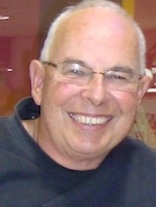

Bruce Holland:
Workplace Wizard
Contact Bruce
| ph |
| +64 21 620 456 |
| Skype |
| bruce.holland |
| 16 Kauri Street, Woburn, Hutt City, Wellington, New Zealand |
| Bruce.Holland @virtual.co.nz |
 |
Business models based on love
The current business model, now over 100 years old, is based on control, isolation and fear. These characteristics are abusive to any living being.
Business models based on love are liberating and make far more business sense. Indeed, I think love may be an organisations' most important asset and competitive advantage.
When I talk about love, I'm talking about freedom (instead of control), connectedness (instead of isolation) and trust instead of fear). I'm talking about:
- Helping someone become more of who they are
- Helping them remove barriers so they can become free
- Giving them opportunities and belief so they can surprise themselves
- Including them rather than excluding them
- Helping them find their purpose in life.
Teilhard de Chardin, one of the great thinkers in the last century, says this has potential consequences as great as the mastery of fire. I agree:
"One day, after we have mastered the winds and the waves, gravity and the tides, we will harness for God the energies of love. And then, for the second time in human history, mankind will have rediscovered fire." Teilhard de Chardin (1881-1955).
All human beings possess a need to feel significant and connected, yet many organisations manage to make their people feel just the opposite. We seem to sublimate much of our human nature. What I find is power, ego, separation and fear dominating over care, love and cooperation. We need to listen, love, care and support each other more.
Today's problems both in organisations and in the world are not technical, they are nearly all based on poor human relationships. It's caused by separation where there should be connection, fear where there should be trust, control where there should be love.
Management behaviours
Managers in business models based on love:
- See their main priority as making their people stronger, encouraging them to be more than they thought they were capable of
- Are givers. They see abundance rather than scarcity. They know giving multiplies through reciprocity.
- Know that people are far more closely connected to each other than other managers believe. As a result they operate in a fundamentally different way.
- Know that, because people are deeply connected, the thoughts they carry in their heads directly impact others even if they are unspoken.
- Know about the human need to connect and belong. They invest considerable time and effort creating workplaces that connect people.
- Know the "space" between people is not empty. It's full of energy made up of trust, feelings emotions, information and love. They make it their business to manage this "space" at least as deliberately as they manage the individuals.
- Know that collaboration is a stronger force than competition. They discourage competition, especially within the organisation.
- Know that their organisations are organic, not mechanic. They work hard to nurture the organisation as a living system.
Collaboration
Collaboration is one of the strongest demonstrations of love in business. For more on collaboration see:
- A definition of collaboration
- The business case for collaboration
- A Sector-wide case study on cllaboration
- Secrets of collaboration
- Virtual Group's Desilonisation program, designed to get people out of silos and working more collaboratively.
Bruce Holland
Virtual Group Business Consultants
email: bruce.holland@virtual.co.nz
Ph +6421 620456 or Skype Bruce.Holland\\
web: http://www.virtual.co.nz//
Bruce helps large mature organisations be more focused, fast and flexible. Places where people have more depth, connection and meaning. "Liberating the Human spirit at work." He is one of New Zealand's most experienced change agents and is the founder of Virtual Group Business Consultants Limited.


